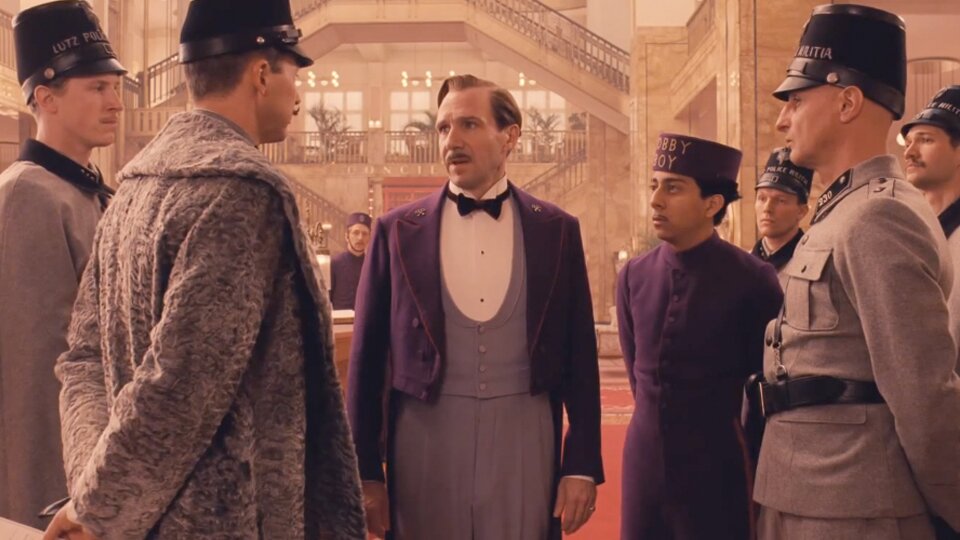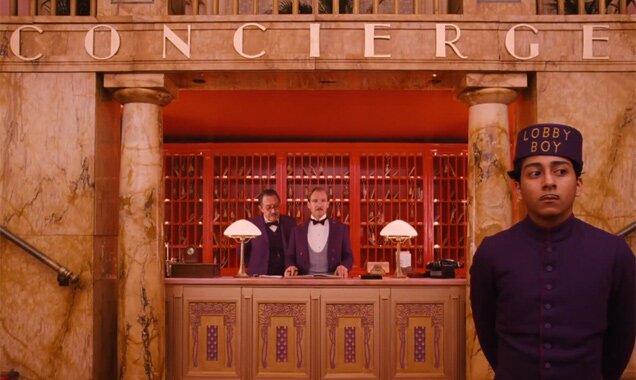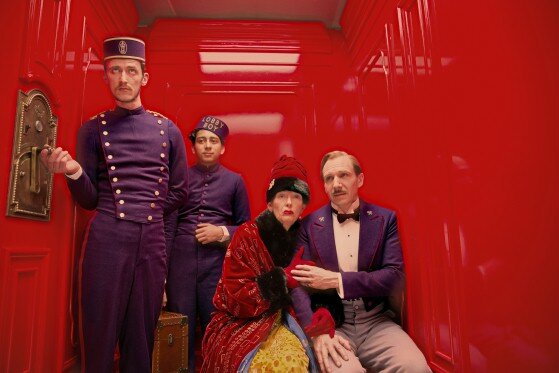A look at Wes Anderson’s latest picture: an elaborate caper centred on a magnificent hotel and filmed entirely on location in Germany.
Directed by Wes Anderson, 100 minutes.
It is a criticism heavily levelled against Wes Anderson that his films lack substance, forfeiting deeper meaning for stylistic choices, and ultimately all blending into one. His films are not ‘revolutionary’, whatever the word means. Undeniably his filmography is a symphony of colours, details and impeccably designed sets, and The Grand Budapest Hotel is no exception to his vision. The world Anderson creates in all of his films is one in miniature, the smallest details impeccably accounted for, yet the adventures his characters undertake are some of the grandest. His latest film features, to name but a few events, murder, a prison break, art theft and a ski-based chase sequence. Yet for all the mad escapes that feature in the film, it seems more melancholy than any of its predecessors, set against the backdrop of an impending war and most of the characters victims of loss or heartache in some form or other.
The Budapest employs and therefore brings together waifs and strays, led by Ralph Fiennes on fine form as the marvellous Gustave H, the hotel’s concierge. The narrative itself comes third hand, from a writer (portrayed in his youth by Jude Law and in old age by Tom Wilkerson) recounting a meeting with Gustav’s former pupil, a lobby boy named Zero Moustafa who became the richest man in the fictional republic of Zubrowka (the elderly Moustafa played by F. Murray Abraham). He is the film’s heart, a wide-eyed disciple of Gustave who experiences all manner of life-changing events during his tenure at the Grand Budapest. Tony Revolori’s portrayal of the young Zero is excellent, but Fiennes steals the show in his best role in years. Adrien Brody also appears as the dastardly villain Dmitri with a very menacing Willem Dafoe as his henchman. Of course the usual Anderson collaborators such as Jason Schwarzman, Owen Wilson and the incomparable Bill Murray make appearances in various smaller roles, most amusingly Jeff Goldblum as a mild-mannered attorney who gets caught up in the chaos.
But returning to that earlier criticism so often levelled at Anderson, it seems often his style is misattributed as his story. Anderson tells fantastical tales about marvellous people (or in one case, foxes) but the themes at the centre of his films, from love and loss to ambition and war are undeniably strong. He addresses topics that in cinema are riddled with clichés in his own unique manner and his visuals are always unforgettable. Whilst The Grand Budapest Hotel is unlikely to convert any of Anderson’s critics, for his fans this tribute to a bygone era and in fact a bygone world is a brilliant watch, one of the most thoughtful of Anderson’s films even amongst the grandiose escapism.






